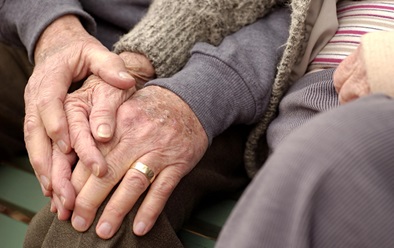Ananda staff have access to an online course on Ananda Academy called ‘Intimacy and sexuality at Ananda”
170 staff have completed this course which is based on content developed by the Royal College of Nursing (RCN, UK).

Sexuality remains a fundamental aspect of being human throughout life. It encompasses gender identities and roles, sexual orientation, intimacy, sexual expression and sexual acts.
Sexuality influences identity, self-image, self-concept and self-worth. It also affects mental health, physical health, social relationships and quality of life.
Sense of self and identity are also maintained through relationships with others and can become increasingly important in later life. Relationships, particularly those which are long-term and close, can provide comfort and support to sustain individuals through multiple life changes and loss.
Relationships can help individuals to feel valued, wanted, desired and enjoyed. Sexual relationships and pleasure from sex do not necessarily diminish in later life, particularly in established couples. As international evidence is now highlighting, many people continue to enjoy sexual relationships to the end of their lives.
When older individuals become ill or disabled and consequently are unable to meet their own needs independently and privately, enjoying their rights to freedom of sexual expression and intimacy becomes more difficult. If they move to live in a care home the situation becomes more complex as not only are residents generally more dependent on staff to help them meet their needs, but care homes are communal environments where the rights of others in the home need to be considered.
Dealing with sexual self-expression, intimacy and sexual relationships can pose difficulties for residents, partners, families and staff. However, the fundamental rights of individuals to autonomy, choice and consent are established in law and underpinned by human rights legislation.
In addition, individuals have the right to remain free from discrimination

Sexuality in older age: normal and natural
A recent survey of a nationally representative sample of people aged 50-90+ (Lee and Tetley, 2017) found that men and women remain sexually active and sexually intimate into their 70s, 80s and 90s. While age-related changes are complex and sexual activity changes over time, partnerships can remain satisfying, caring and rewarding. This research highlights that sexual health in later life confers benefits on general health and quality of life. It is important to recognise the diversity in older populations in terms of age, experiences, expectations, priorities, preferences and desires. Older people, like those in younger age groups, are diverse in their desire for sexual intimacy. We do recognise that, as people age, there are changes both as part of normal ageing and pathological changes that can impact on sexual functioning.
A key message is that older people can find other activities, as well as sexual intercourse, rewarding and life affirming. Such activities include: • being close – both physically and mentally
• cuddling
• kissing
• music and dancing
• being naked
• sharing a bed
• sexual intercourse
• using sexual adjuncts.
Being close involves sharing time, smiles and friendly words, being totally available for each other and having control and choice over the engagement in these activities whether in existing or new relationships.
The notion of being together, of spending intimate pleasant time, can contribute to improved mental health, decreased levels of stress and decreased feelings of loneliness.
For some people older age is an opportunity for new and fundamentally different foundations for intimate relationships. Some enjoy progressing their sexual activity, some may wish to try new things and sometimes with different people.
With less time pressures than in the earlier times of their lives, some older people report that sexual activity can be more leisurely, lasting over an entire afternoon or an entire day.
Want to know more?
Ananda has a Diversity Action Group which meets every 2 months and discusses issues of intimacy and sexuality at each meeting. We hope to appoint and train a nurse champion for sexuality soon. We also have a Diversity Champion, Belle Zecchin, based at our Hope Valley home, who has a special interest in supporting staff and residents from the Lesbian, Gay, Transgender or Intersex communities. If you have any issues or concerns ask to speak to a senior staff member or complete a confidential Feedback Form – anonymously if you would prefer.





